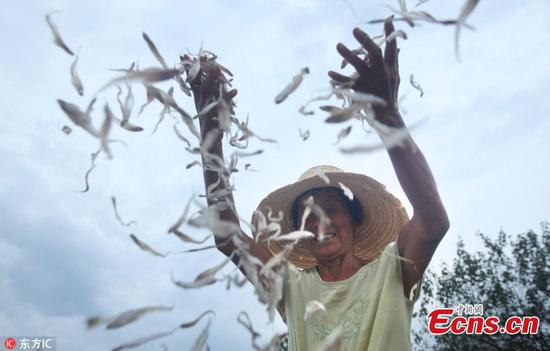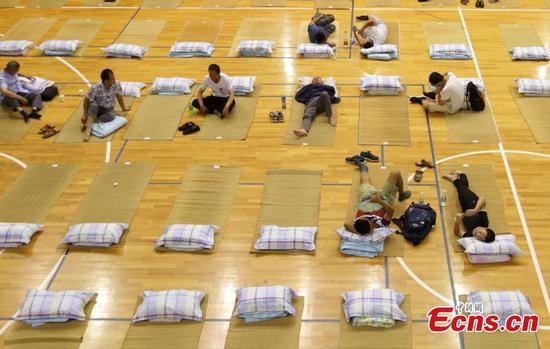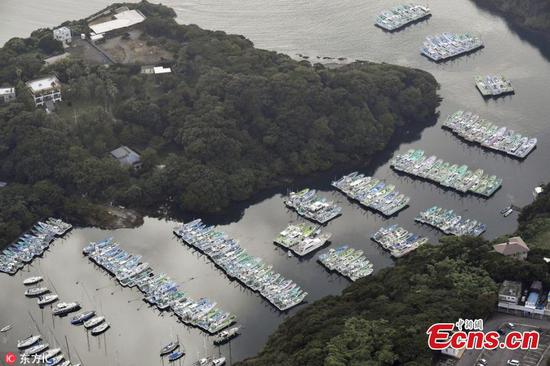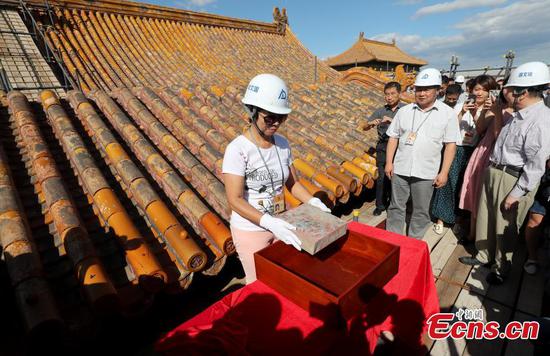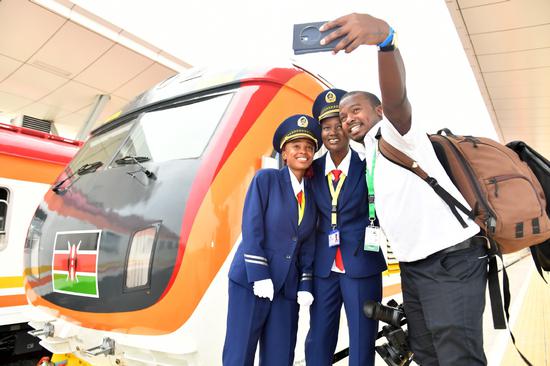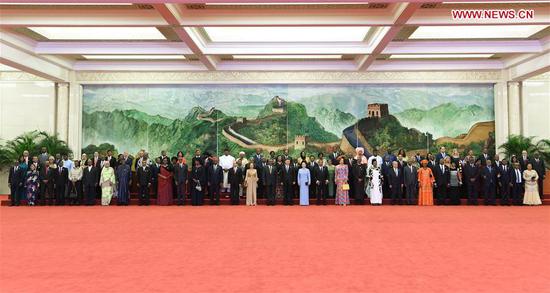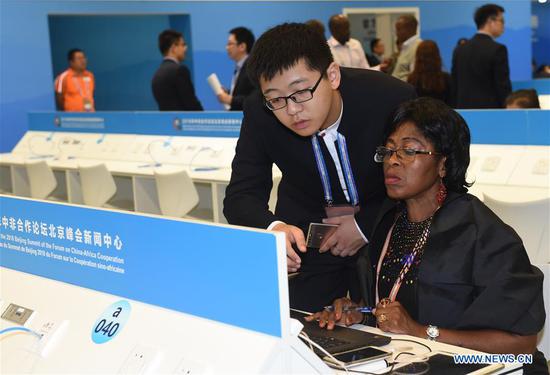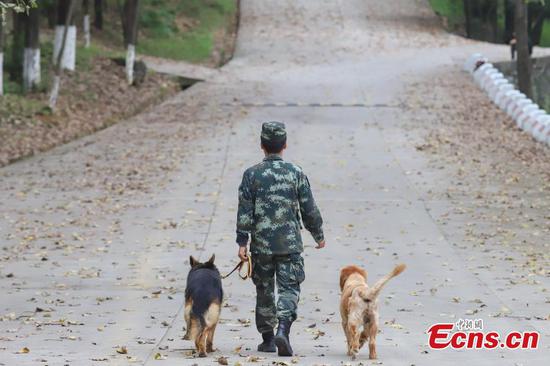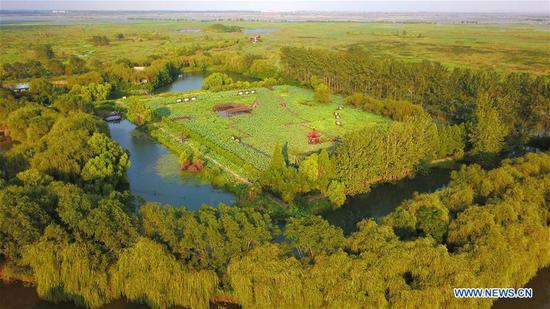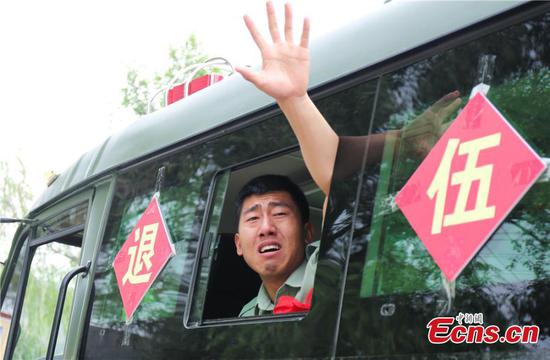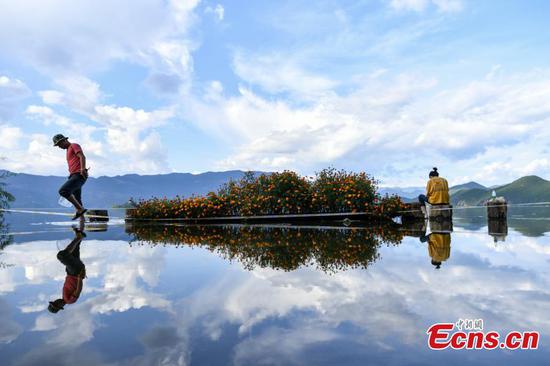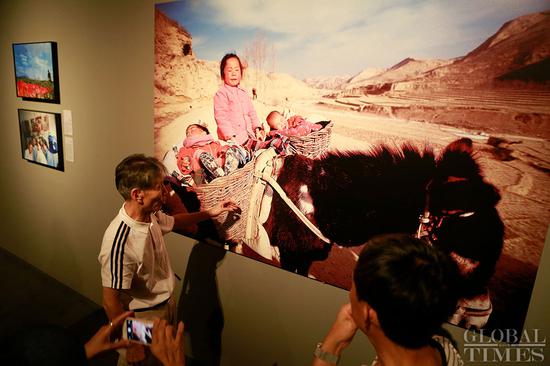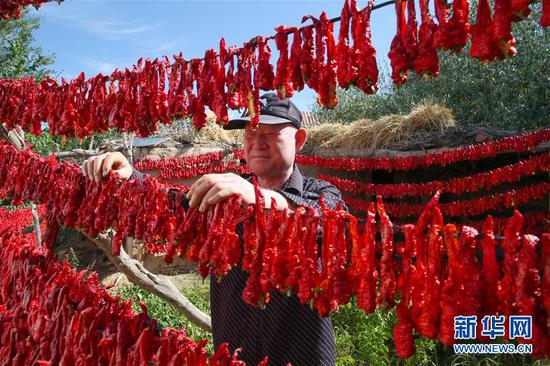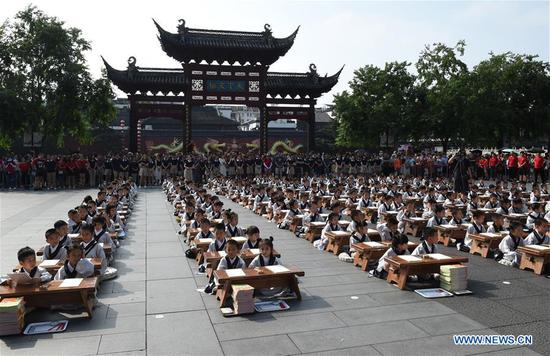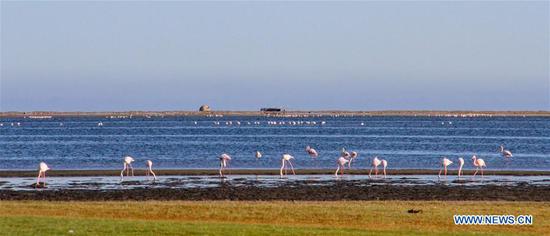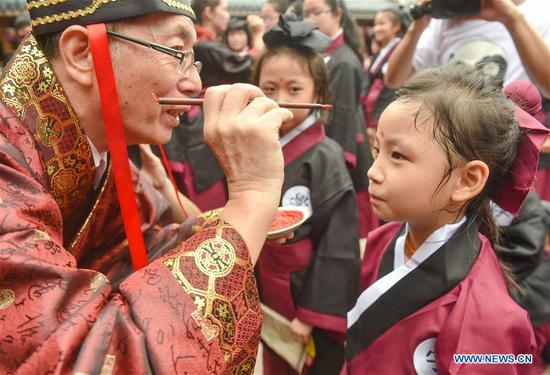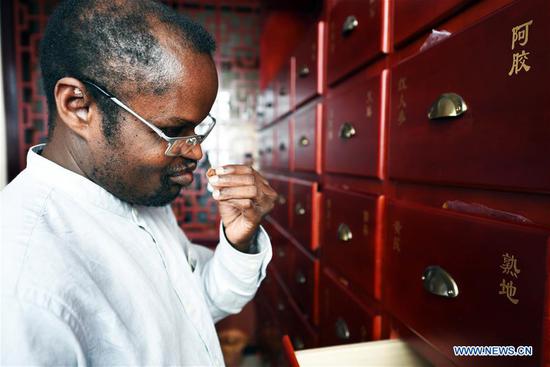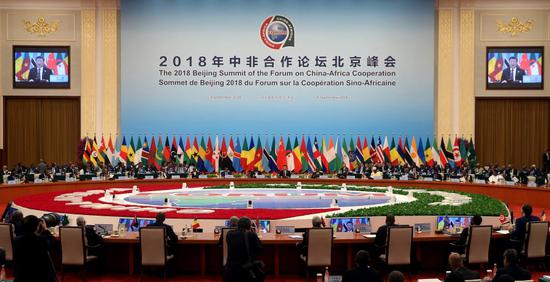
President Xi Jinping speaks during the roundtable conference of the 2018 Beijing Summit of the Forum on China-Africa Cooperation in the Great Hall of the People on Tuesday. (Photo/China Daily)
International scholars lauded initiatives President Xi Jinping unveiled at a major China-Africa summit on Monday, saying that the win-win partnership will help foster sustained growth on the continent and in China.
The eight initiatives Xi announced at the opening of the 2018 Beijing Summit of the Forum on China-Africa Cooperation include Beijing’s pledges to expand imports from Africa, promote industrialization, offer food aid and enhance cooperation in such areas as energy, transportation, technology and water supply.
China will provide $60 billion in support, including aid, loans and special funds, to ensure implementation of the initiatives and Africa’s development, Xi said.
Steve Tsang, a professor of Chinese Studies at the School of Oriental and African Studies and director of the SOAS China Institute in London, said it is encouraging to see Xi advocating for win-win partnerships that are sensitive to the needs of the African people and the long-term sustainable development of African countries.
“In my view, what Africa needs right now is to develop manufacturing because that can immediately create jobs and improve the African people’s living standards,” he said.
As the cost of manufacturing increases in China, it makes sense for the world’s manufacturing hub to shift to Africa and it will be win-win if Chinese companies invest in the continent’s manufacturing sector and share their experiences with local partners, Tsang added.
Christopher Bovis, a professor of international business law at the University of Hull in the United Kingdom, praised Xi’s emphasis on China following a “five-no” approach in its relations with Africa. “The ‘five-no’ approach in China-Africa relations represents best practice standards in international relations and trade law.”
In his speech, Xi introduced the approach — no interference in African countries’ pursuit of development paths; no interference in internal affairs; no imposition of China’s will on African countries; no attachment of political strings to assistance; and no seeking of selfish political gains in investment and financing cooperation — in China’s relations with Africa.
Tanaka Chitsa, a political analyst, researcher and writer based in Harare, Zimbabwe, said, “Xi’s message was strong and clear that China is dealing with Africa as an equal and will not impose conditions.”
“This ushers in a new era of South-South cooperation at a time when the West is strongly pushing in the opposite direction, and advocating for anti-globalization,” he said.
Dawood Alileear, president of the Alif Society in Mauritius, said China’s aid is intended to foster peace and security, and promotes science, education, culture, health, poverty reduction, people’s welfare and people-to-people exchanges, all of which are priority areas amid ongoing work to lift Africa out of poverty.
“President Xi is hitting the nail on the head. The aid proposed by China will address areas that are among Africa’s most pressing priorities,” the scholar concluded.
Ehizuelen Michael Mitchell Omoruyi, executive director of the Center for Nigerian Studies at Zhejiang Normal University’s Institute of African Studies, observed that the Belt and Road Initiative can act as a vital vehicle to promote regional connectivity as well as help expand regional markets.
The initiative will spur economic growth against the backdrop of rising trade protectionism and unilateralism, he said.
“China’s preference for dialogue and partnership has created greater resonance, unlike the West’s way of investment, which for decades has deprived Africa of real economic independence,” he added.
According to Patrick Duong, a regional adviser at the United Nations Development Programme in Thailand, African and Asian countries can share knowledge and expertise given similarities in their implementation of sustainable development goals.
“The development context is similar for both Asia and Africa,” Duong said.
Sustainable development goals were launched by the UN in 2015 and refer to a set of universal goals aimed at ending poverty, promoting gender equality, tackling climate change and reducing conflict.
The goals are also known as Agenda 2030, and over 190 UN member countries pledged to meet these targets by 2030.
Most of these countries are in Africa and Asia.
Terence Chong, an associate professor of economics at The Chinese University of Hong Kong, said China’s investments in and grants to Africa will help the continent meet its sustainable development goals such as poverty eradication.
Chong said China’s infrastructure funding, for example, can attract more foreign investors, create jobs and lift more people from poverty.









